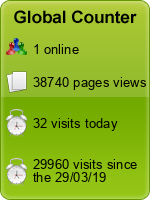PENGARUH KEPEMIMPINAN, MOTIVASI KERJA DAN LINGKUNGAN KERJA TERHADAP KINERJA KARYAWAN KANTOR PUSAT PDAM SURAKARTA
Abstract
This study aims to determine the effect of leadership, work motivation and work environment on employee performance at PDAM Surakarta Head Office, either partially or simultaneously. The study consisted of one dependent variable and three independent variables. The independent variables in this study were leadership (X1), work motivation (X2) and work environment (X3). The dependent variable in this study is employee performance (Y). This research is a quantitative case study. The target population was selected by using the census sampling technique (saturated). The census technique is a sampling technique if all members of the population are used as samples. Given the relatively small population in this study, which is less than 100, in this study the research sample was taken using the census technique so that all the population in this study were taken as samples, so the sample of this study amounted to 85 respondents. Analysis of the data used in this study is the research instrument test, multiple linear regression test, t test, F test and the coefficient of determination test.
The results showed that the variables of leadership, work motivation and work environment had a significant effect on employee performance. These three variables have a significant effect on employee performance simultaneously. The most dominant variable that influences employee performance in this study is the leadership variable, considering that the regression coefficient value for the leadership variable in this study is greater than the regression coefficient for the other variables, which is 0.788.
Keywords
Full Text:
PDFReferences
Affandi. (2002). Pengaruh Iklim Organisasi terhadap Kepuasan Kerja, Komitmen dan Kinerja Pegawai Lingkungan Pemerintah Kota Semarang. Thesis. Universitas Diponegoro Semarang.
Amir, Mohammad Faisal, (2015). Memahami Evaluasi Kinerja Karyawan,Konsep, dan Penilaian Kinerja di Perusahaan. Jakarta: Penerbit Mitra WacanaMedia
Chukwuma, E.M., & Obiefuna, O. (2014). Effect of Motivation on Employee Productivity : A Study of Manufacturing Companies in Nnewi. Journal of Managerial Studies and Research 2 (7).
Danang Sunyoto. (2015). Manajemen dan Pengembangan Sumber Daya Manusia. Yogyakarta: Center for Academic Publishing Service.
Dessler, Gary, (2015). Manjemen Sumber Daya Manusia. Edisi keempat belas alih bahasa Diana Angelica. Salemba Empat.Jakarta.
Handoko, (2015). Manajemen Edisi kedua. Yogyakarta: BPFE-Yogyakarta.
, (2012), Manajemen Sumber Daya Manusia. Rineka cipta: Jakarta.
Hasibuan, Malayu S.P, (2016), Manajemen Sumber Daya Manusia. Bumi Aksara, Jakarta.
Kartono Kartini, (2014). Pemimpin dan Kepemimpinan: Apakah Kepemimpinan Abnormal, Jakarta: Rajawali Pers.
Porter,J.,Steers, R.M., Mowday, R.T. and Boulian, P.V, (1974). Organizational Commitment, Job Satisfaction, and Turnover Among Psychiatric Techniacians, Journal of Applied Phsychology, 59, p. 603-609.
Rivai Veithzal (2010). Kepemimpinan dan Perilaku Organisasi. PT. Raja Grafindo Persada. Jakarta
Sugiyono (2016) “Metode Penelitian Pendidikan (Kuantitatif Kualitatif Dan R & D),” Bandung: Alfabeta.
. (2017). Metode Penelitian pedidikan pendekatan kuantitatif, kualitatif, dan R&D. Alfabeta, Bandung.
Torang, S. (2013) “Organisasi dan Manajemen: Perilaku, Struktur, Budaya dan Perubahan Organisasi,” Bandung: Alfabeta.
Winardi, (2012), Manajemen Perilaku Organisasi , Edisi Revisi, Jakarta, Kencana Prenada Media Group.
DOI: http://dx.doi.org/10.52429/smj.v4i1.890
Refbacks
- There are currently no refbacks.

This work is licensed under a Creative Commons Attribution-NonCommercial 4.0 International License.






